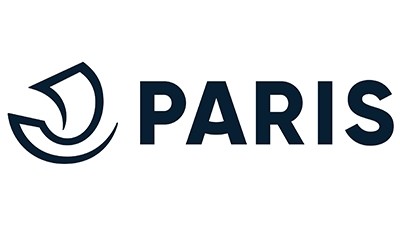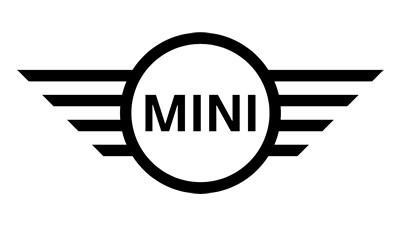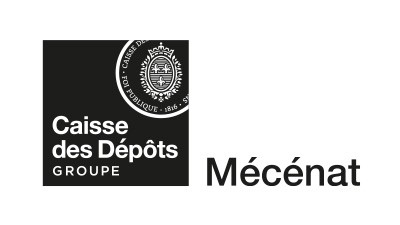For its 7th edition, FAIRE—the accelerator of innovative architectural projects of Pavillon de l’Arsenal supported by the City of Paris, MINI et Caisse des Dépôts—is placing its primary emphasis on adaptation, inclusiveness, and tackling the climate emergency.
An opportunity for the movers and shakers of the urban and architectural fields to submit applications in multidisciplinary teams, this year FAIRE 2023 is proposing to explore 4 major themes needed for the cities of today and tomorrow:
→ Adaptation to climate change
→ Land transformation and soil regeneration
→ Inclusive public spaces
→ Artificial intelligence and architecture
Prototypes, research, and experiments led by architects, urban planners, landscapers, designers, engineers, researchers, artists, journalists, collectives, nonprofit groups, students… Through FAIRE, Pavillon de l’Arsenal offers backing to initiatives characterized by their collective, socially engaged and innovative nature.
If your project is selected, the accelerator will assist you in defining your research methodology, identifying suitable partners or locations for its development, and provide financial, technical, and logistical support.+
4 themes to transform the city
→ Adaptation to climate change
Resilience in the face of climate change is the most widely shared challenge across all cities and populations today, prompting a reevaluation of all urban decisions and actions. How can buildings and public spaces be adapted to the challenges of climate change? How can we ensure the livability of the city for individuals of all conditions in the face of rising temperatures? What architectural solutions can be seemlessly integrated with heritage preservation? How can we draw inspiration from other contexts, especially from southern cities, to adapt our urban landscapes?
→ Land transformation and soil regeneration
Land, which is the primary resource urban planning makes use of, is undergoing an unprecedented twofold transition—ecological, with the goal of restoring extensively artificialized spaces, and economic, with a quest for more sustainable land models, particularly in a context of apparent return of a real estate crisis. How can living soils be recreated? What novel models of land occupation and use distribution can be envisioned? What solutions can be applied to prevent further artificialization? What new imaginaries can be conjured for the future of urban landscapes between densification, sprawl, and rewilding?
→ Inclusive public spaces
While the notion of public space can be considered the essence of what living together as a society is about, ensuring universal accessibility remains a major challenge. How can we transform public space to ensure that all sorts of people experience a greater sense of well-being, particularly the most vulnerable? In what ways can streets become more inviting for people of all ages, from children to seniors? How can all genders be made more visible and their safety and comfort be ensured? What strategies can be employed to mitigate the division and exclusion of spaces based on social groups? What urban mechanisms can be leveraged to promote these commons?
→ Artificial intelligence and architecture
The promises and perils of artificial intelligence are already actively reshaping the world of architecture and prompting the reevaluation of the designer’s role. While the spectrum of possibilities is expanding exponentially in terms of creativity and efficiency, some forecasts warrant increased scrutiny. How can AI be used to enhance architecture? What frameworks can be established to foster collaboration with, rather than substitution for, human endeavors? What new forms and functions can AI inspire? Can artificial intelligence help advance a more environmentally sustainable architecture?
Patrick Bloche, President of the Pavillon de l'Arsenal, Chairman of the Jury / Charles Antoine Depardon, Urban Planning Advisor to Emmanuel Grégoire, First Deputy Mayor of Paris / Marion Waller, Managing Director of the Pavillon de l'Arsenal / Guillaume de Sazilly, Director, MINI France / Gabrielle Jequece, Head of the Architecture and Landscape sponsorship program, Caisse des Dépôts / Hélène Aguilar, Founder of the podcast "Où est le beau? "podcast and the Amour Vivant Biennial / Noé Basch, Development Director, Mobius / Miléna Charbit, Architect, winner of the Faire 2020 award / Kim Courrèges, Architect, Plan Común / Juliette Donadieu, Managing Director, Gaîté Lyrique / Fabien Gantois, Architect - President of the Conseil Régional de l'Ordre des Architectes d'Île-de-France / Jasmine Kenniche Le Nouëne, Architect, JKLN, winner Faire 2022 / Madeleine Masse, Architect Urban Planner, Atelier SOIL / Léa Mosconi, Architect, Bony Mosconi
TECHNICAL COMMISSION
Marion Apaire, Paris and co / Atelier +1 / Atelier Approches / Marlon Bagnou Beido, Warm Weekend Studio / Léa Baudat, Pavillon de l'Arsenal / Nicolas Bellet, Pavillon Noir Architectures / Charlotte Belval, Belval Parquet / Célia Berdy, Studaré / Salomé Boyer, Semapa / Olivier Campagne, perspectiviste / Aline Cauchy, Atelier Georges / Adeline Chambe, Paris & Métropole Aménagement / Mathilde Charles, Pavillon de l'Arsenal / Eve Chavannes, Paris and co / Jean-Christophe Choblet, Ville de Paris / Sophie Civita, Pavillon de l'Arsenal / Catherine Coquen, Semapa / Anna Cremnitzer, Une fabrique de la ville / Judith Cubertafond, Paris Habitat / Malicia David, MINI / David Dottelonde, Atelier Senzu / Charly Dufour, Poumtchak Studio / Soufyane El Koraichi, designer / Pablo Fillit, Pavillon de l'Arsenal / Ariane Fraisseix, Paris Habitat / Marie Gagnaire, Pavillon de l'Arsenal / Nathalie Grand, Semapa / Cécile Gruber, Agence Parisienne du climat / Olivier Imbert, Elogie Siemp / Martin Jaubert, Majma / Gabrielle Jequece, Caisse des dépôts / Miriam Josi, Aléa / Sabrina Lamy, Egis / Éline Latchoumy, Pavillon de l'Arsenal / Aude Le Stum, Pavillon Noir Architectures / César Leblic, César Bazaar / Jean-Sébastien Lebreton, Pavillon de l'Arsenal / Elsa Lebrun, Poumtchak Studio / Nicolas Ledoux, Arcadis / Stella Lee Prowse, Aléa / Louise Lepage, APUR / Frédéric Luccioni, Semapa / Antoine Maitre, Majma / Wandrille Marchais, Atelier Senzu / Jean-Sébastien Milesi, Artelia / Nathalie Montigné, Le Pavillon Caen / Sandrine Morey, Semapa / Vincent Nouailhat, APUR / Belval Parquet, Belval Parquet / Patricia Pelloux, APUR / Candice Pigeard, Director, Institut de la transition foncière / Lucie Ponard, designer / Isabelle Quet-Hamon, Paris Habitat / Mathis Rager, Anatomies d'architectures / Océane Ragoucy, architect, curator and publisher / Estelle Sabatier, Pavillon de l'Arsenal / Catherine Sabbah, IDHEAL / Jade Sonet, Semapa / Céline Steiger, Paris and co / Studio d'écoutes rurales / Camille Surribas, Pavillon de l'Arsenal / Paul Valton, Arcadis / Jean Vannière, IDHEAL / Yann-Fanch Vauleon, APUR / Ludovic Vion, Semapa / Raphaël Walther, Anatomies d'architectures / Michèle Zaoui, Ville de Paris






